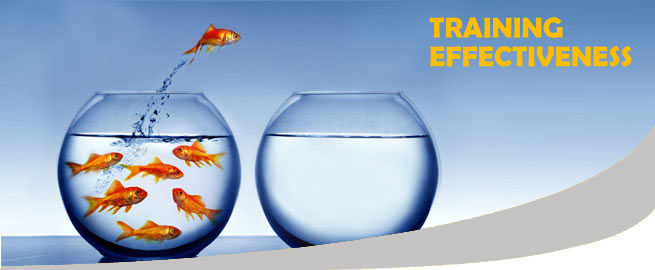When I started my career into sales my first training was like some crash course of IIT JEE. Trainer will come he will try and make you understand all the medical and marketing aspects of the product; he will ensure that you are able to spell out every complex molecule name with ease.
You will undergo a series of test papers coming day after day and the final test which will decide your fate.
So for me it was how effective I was as a learner and not a trainer, because it was me who will be thrown out of the group for non-performance.
When I made a shift from Sales to Training again I was like a fresh graduate as, all my sales experience only supported me in understanding the real situation and ways how it can be worked, I was able to simulate the real world experience but as a trainer – I still had to hone the required skill-set.
Though delivery was never a problem and I mastered it. Now I was working in an environment where, questions were being asked about training effectiveness, but it was simpler as it was linked to my first-hand experience, remember my crash course experience.
Now I had transition from a domain based trainer to behavioral trainer. AND THE NEXT BIG QUESTION WAS – MEASURING TRAINING EFFECTIVENESS
I guess it was 1 year of my struggle with the big question and now I am able to satiate both ends of the string – My Customer and Myself. Basically, for me it was as difficult to tie a horse with imaginary rope.
Things you need to learn before you measure or execute the training effectiveness:
1) What exactly is in their mind:
Expectations can be endless”.
Your internal/client has the right to set any expectation regarding your training before you met him and set the expectation right. On one good day my boss asked me to prepare training on effective communication and I did the same mistake, I never asked. ‘What change he would like to see after the training?’
Steps you should follow before delivering any presentation in your new organization:
a- Explore their job: We as a trainer generally exhibit empathy, but do we really mean it. Come on remove your shoes and prepare yourself to put some muddy, uncomfortable shoes for a while. Remember you will feel more pain than they have it in real. This will help you to understand the key area of priority. REMEMBER, don’t assume their need, just try it first-hand and find out.
b- Remember they have a Boss: As a trainer we try to full fill the expectation of our participants inside room. What about the set of people outside, who are waiting eagerly for the results to come.
2) How you can help:
Remember learning is like taking bath, you need to take it every day, or soon you will be stinking.
a- Know your limits: Every expectation cannot be met as stated earlier, Discover the most painful area you felt after thorough research and discussion over the expectation, where you can have a valid intervention.
b- Sell your Training: Before you do any Training program for any group, sell it to their bosses. Here we are not telling to mail the teasers and stuff. It’s about selling the outcomes so that none of your customer can come up and say:
“Hey you never delivered what we expected out the training”
“Training was really good we can observe the change in ‘xyz’ behaviors, but would be great if peoples demonstrated ‘abc’ also”
c- This is what you need to do: You are not a superhero, make them part in making and measuring the effectiveness. Clarify their role that how they can reinforce the learning. Ask for feedback in a formal patron to avoid complicated situations. (as discussed in Point B)
3) A Cook never tastes his own Dish: As old saying In India “Halwai apni Mittai Kudh nahi kahhta” A desert maker never tastes his own desert/dish. With the change in time, they do and you are a trainer. The saying never set’s right into your context. Try it once so that you have your own case study. Remember people get motivated when they listen inspirational stories. It happens because they relate or put themselves in the place of character.
Guest Blogger: Rahul Molasi, is working as a Training Manager in Cipla Pharmaceuticals. A family person, Rahul loves to travel in his pastime.
